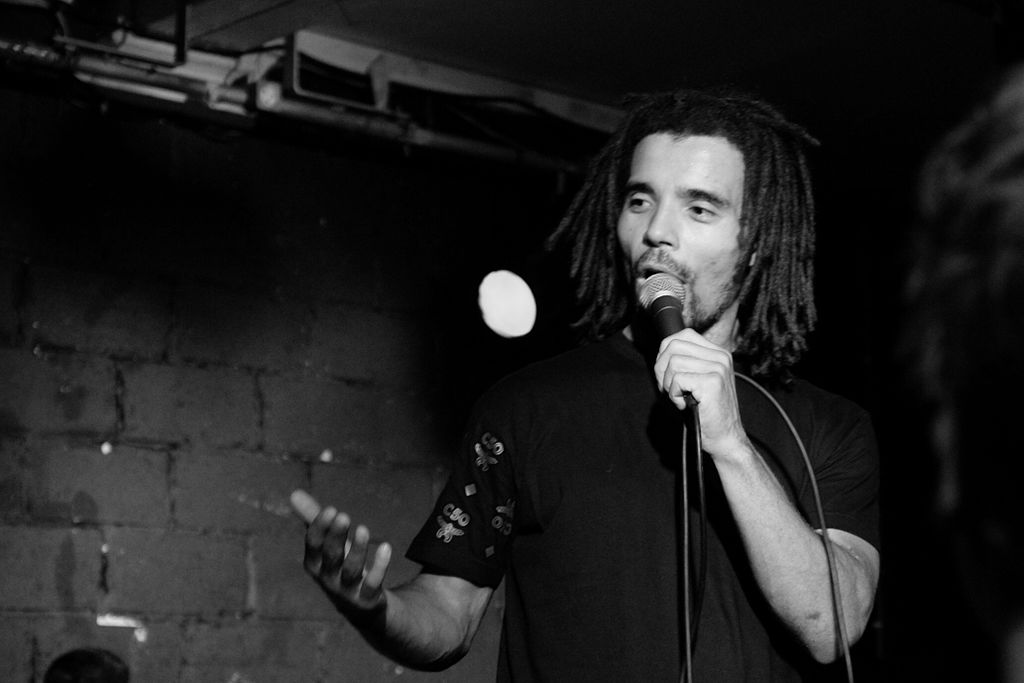Why rapper Akala is good for TV
When the rapper Akala called out Britain's racism on Frankie Boyle's show.

Akala (Wiki Commons).
The comedian Frankie Boyle is one of the few performers currently on UK television worth listening to. He insists on pointing out the complicity of the UK establishment with mass child abuse. He talks about the crimes and exploitation of the British empire, and links that to the ongoing debate around “immigration.” He criticizes Israel (and Britain’s complicity in supporting Israeli apartheid). He makes the wrong kind of jokes about American military aggression. He protests against Guantanamo Bay. And he refuses to talk about poverty and corruption using the BBC’s customary euphemisms (mainly because unlike almost everyone else who works for the BBC, Boyle is working class).
All this means that when Boyle is allowed to make a TV show, it doesn’t actually go on TV. Instead it goes online only, where the BBC hope it won’t get seen by the swivel-eyed right wing press.
This week, he put out Frankie Boyle’s Election Autopsy, an unapologetically frank assessment of the UK’s suicidal re-election of the Conservative Party.
Boyle had the excellent rapper and writer Akala on to comment on the proposition that “Britain is racist to the core.” His answer was so good he even convinced the audience. Watch, learn and share.
This is what happens when broadcasters allow thoughtful, serious people to talk about important things on TV. No wonder it’s so rare. Instead the British media is dominated by an entrenched cast of mediocre old white guys who are either constantly trolling or else too complacent to bother — presenters like Jeremy Paxman, David Dimbleby, and Andrew Neil; “historians” like the crusty old racist David Starkey.
We covered the UK election, and particularly the depressing debate around “immigration,” quite a bit over the past month or so. Check the podcast we did with Musa Okwonga where he gave us his insights on the UK election and the refugee crisis in the Mediterranean. We also wrote about a documentary that showed on Channel 4, Britain’s Racist Election, to get some longer context on racism and electoral politics.
Perhaps we spend too long interrogating British jingoism and its destructive effects. For some reason, we still expect better from the UK than racist old codgers like Jeremy Clarkson (as TO Molefe wrote last year) and we still think it’s worth objecting when the poorest and most marginalized in British society are targeted for vilification by the state itself (something we’re likely to see much more of under the current government).



















